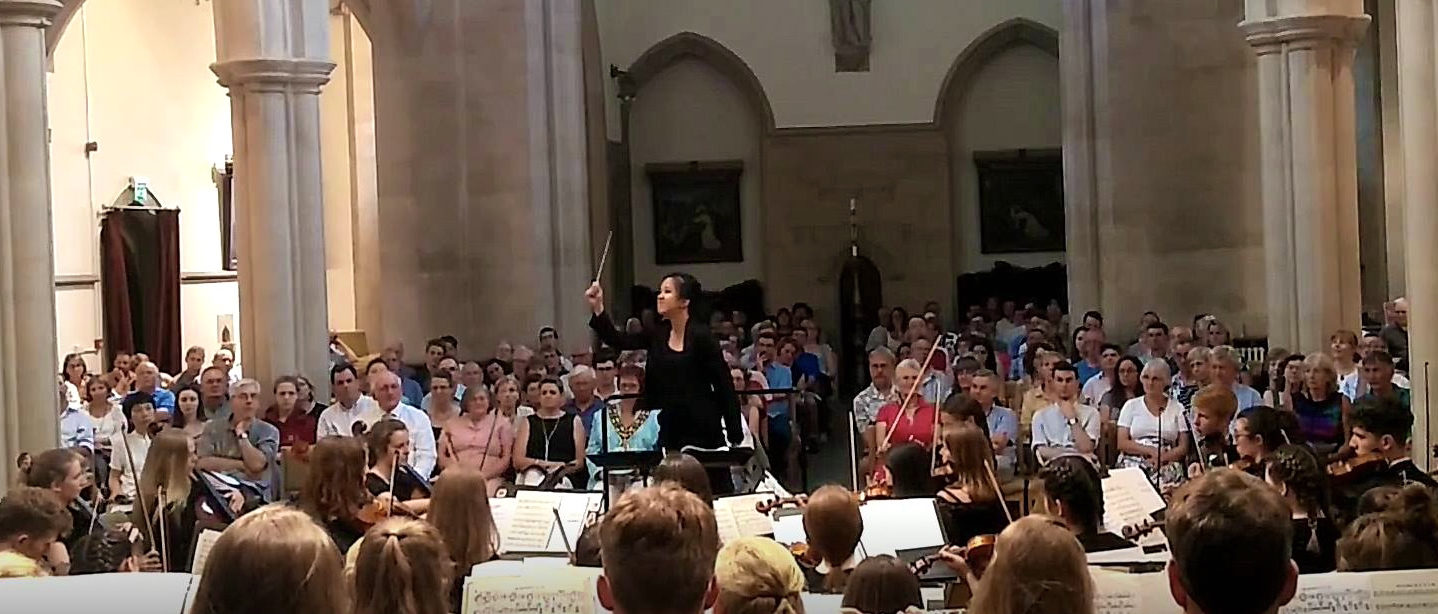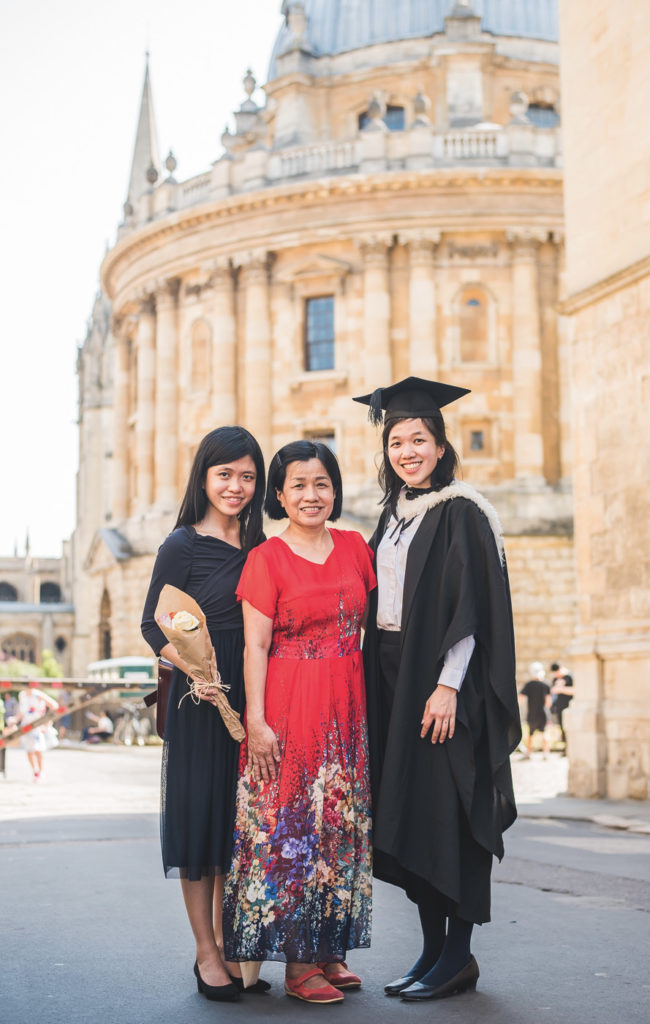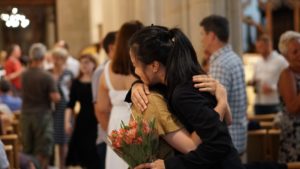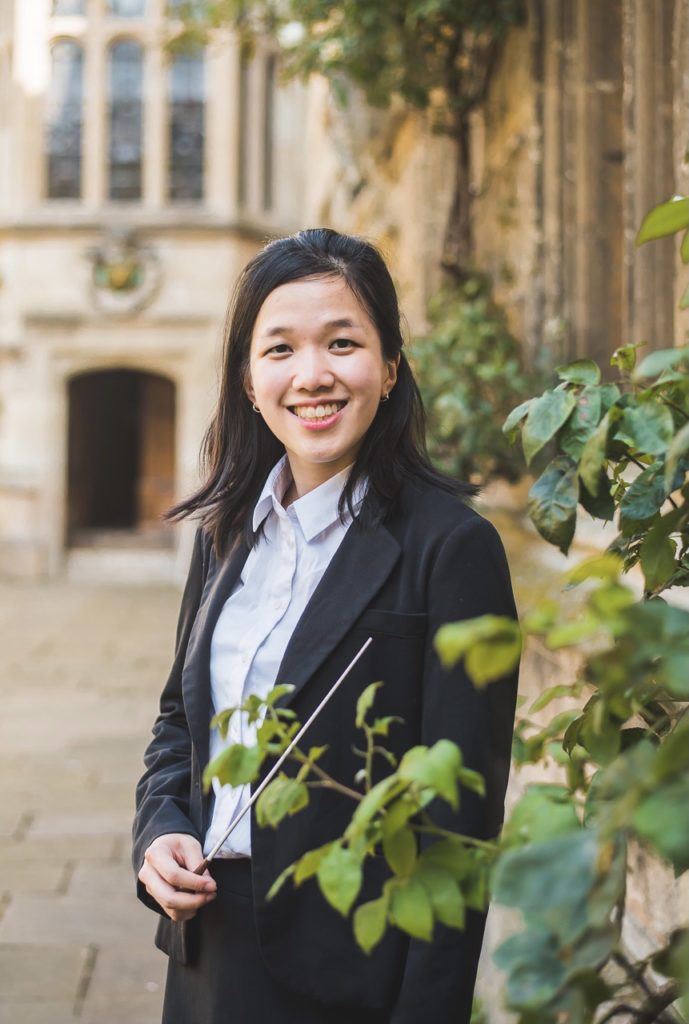
As part of the four-part series, conductor Yvonne Soo Yi Yun reflects on studying music at Oxford University where she embraced and looked beyond her sense of “in-betweenness”.
By YVONNE SOO YI YUN
Conductors, like all artists, always have something to express through their creative output, even though they make no sound on the podium.
I am a Malaysian studying orchestral conducting in the UK. As a first-generation university student, I graduated from Oxford University with a BA in music, on a scholarship, after which, I completed the first year of my Master’s studies in July 2020. Since, I have been on a gap year in Malaysia, during which I launched the Free Music Project, amongst other projects.
I envision conducting as a language to express and create something memorable with other musicians, be it a specific emotion or story; a means of bringing different individual voices – performers, composers, and audience – together, to experience a shared moment.
But after arriving at Oxford, I questioned my place and ability to tell some of these stories. A few different occurrences led to this doubt:
- When a tutor said they could understand why some of my sentences seemed awkward since “English is not your first language”, despite my self-perception as a native English/Mandarin bilingual.
- When I, the only Malaysian and one of the few international students in the faculty, was tongue-tied at being asked what “Malaysian music” constitutes; while feeling that I knew little of the Western classical music canon to claim better understanding of that culture, upon learning my peers’ musical background.
- When I went through heaps of reading on Malaysian history and culture at the Radcliffe Library to prepare my 10,000-word dissertation on music videos that emerged in response to the Malaysian 14th General Election; and wondered why I hadn’t read them in my home country.
My language, I realised, had been interwoven with fragments of different cultures and histories, and at the time I was struggling to piece them all together.
Early years
My earliest musical memories involve Pixar and Japanese animated film music. I still chuckle whenever I recall my discovery of the exuberant first movement of Beethoven’s Seventh Symphony, through the anime series Nodame Cantabile! It eventually became the basis of analysis in my Oxford application essay. Sometimes, “Western” musicals made their way into my viewing: I would sing and dance to The Sound of Music.
My family played a central role in shaping my identity. I grew up speaking Mandarin with my parents, alternating between Mandarin and English with others. I developed a deeper knowledge of classical music and stronger command of English due to parental support. Live classical music concerts, orchestras and learning programmes were scarce and difficult to access in Setapak and Petaling Jaya, where I lived in the mid-1990s/2000s.
Nonetheless, I was afforded the opportunity to sing in my high school choir, which led to performing with the Dithyrambic Singers, a local choir, and the Malaysian Philharmonic Orchestra as an occasional choral singer. My passion with music education and outreach led me to co-found a refugee choir, and eventually, pursue a degree in music.
My parents gave their five daughters everything they could not have. And my sisters showed me the importance of having something to say, while remaining unafraid to say it.

Navigating the in between
Leaving home and studying abroad challenged what I thought I had known about my cultural and musical identity.
I could not resonate with the “ideal” image or background of a conductor prevalent in glossy print and media: earlier access to conducting opportunities, alongside a deeper engagement with classical music culture that privileged the American-Eurocentric framework.
My self-consciousness heightened at the thought of pursuing a traditionally white, male-dominated profession in classical music. Simultaneously, I grappled with the idea of being culturally authentic as a Malaysian conductor. I felt like an outsider: not enough “Malaysian” nor “classical musician”.
And so I began tracing and connecting the dots from my past until the present, attempting to make sense of my musical voice and complex cultural heritage.
Beyond the in between
I found myself drawing inspiration from scenes and music from childhood for my compositions. They’ve always filled me with a sense of wonder and mystery. While deepening my understanding of the canon, I engaged in discussions on classical music and multiculturalism, as well as diversity and inclusion in the industry.
I sought readings and music recordings with a focus on Black, Asian, and women classical musicians (including conductors and composers!), the histories from which they emerged, and their distinct approaches to composition and performance. Amongst other examples, I learned that pantun, a Malay verse form, was used by French composer Maurice Ravel in “Pantoum” from his Piano Trio. Classical music was and continues to be influenced and shaped by the cultures of other communities and regions.
Oxford was the beginning of uncovering and embracing my “in-betweenness”. More importantly, it was the space within which I sought to look beyond the in between: each of us has a different story to tell, and more of them must be told.
In the words of Dr. Martin Luther King, Jr.: “Whatever affects one directly, affects all indirectly.”
I also looked back at my 初衷 (“chū zhōng” – original hope or intention): the reason I wanted to be a conductor in the first place.
I want to claim my history and passions that may not always conform to the established ideas of a “Malaysian” or “classical musician”, and bring them to the forefront of my musical interpretation and performance.
Amidst the multitude of voices, I have found my anchor not in specific musical events or art forms, but rather, my motivations:
To discover, listen, learn, and share with genuine enthusiasm, like the girl who sang and danced to music playing on the television. To always have something to say and not be afraid of saying it, as a Malaysian Chinese woman, a classical musician, an orchestra conductor, and everything that I am.

Totoro Conducts is a four-part series tracing the journey of a Malaysian woman from her college days till the outbreak of Covid-19. Up Next: Join our writer as she explores her past performances and music projects, leading up to the first lockdown in the UK in March 2020 during the Covid-19 pandemic. Find Yi Yun’s previous column here.
Featured photo on top of page: The writer conducting a concert with the Oxfordshire County Youth Orchestra as assistant conductor in 2018.


